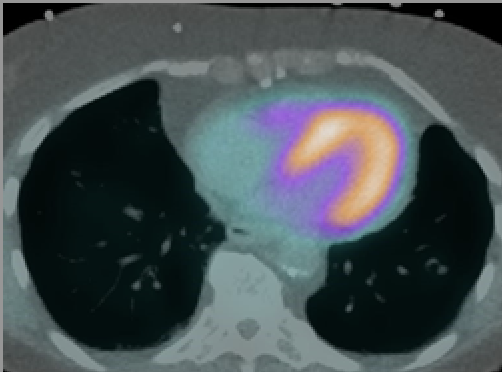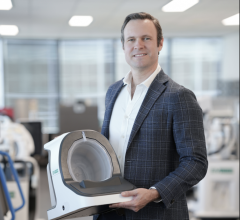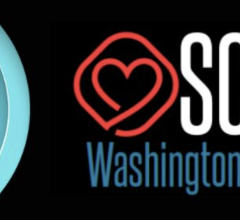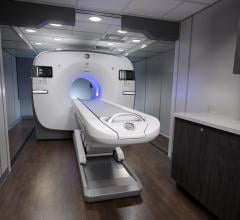
September 7, 2022 — The American Society of Nuclear Cardiology (ASNC) and three partner societies have come together to answer cardiac imagers’ questions about SPECT/CT and PET/CT imaging with attenuation correction, localization of radiotracer uptake and coronary artery calcium scoring (CACS). In a new multisociety guideline published today in the Journal of Nuclear Cardiology, the organizations recommend training and competency requirements for imaging physicians and technologists; describe models for collaborative, cross-specialty study interpretation and reporting; and suggest solutions for the preauthorization and reimbursement challenges that some labs have faced with hybrid imaging in nuclear cardiology.
Authored and endorsed by ASNC and the American Association of Physicists in Medicine (AAPM), Society of Cardiovascular Computed Tomography (SCCT) and the Society of Nuclear Medicine and Molecular Imaging (SNMMI), the new guideline highlights how SPECT/CT and PET/CT testing improve diagnostic accuracy and risk-stratification in patients with known or suspected coronary artery disease as well as the clinical value of hybrid nuclear-CT imaging in assessing infection, inflammation, viability and hibernation in cardiac patients.
“Hybrid imaging is helping cardiology teams enhance image quality and obtain new information that impact treatment decisions and our patients’ long-term outcomes,” says ASNC President-elect Mouaz H. Al-Mallah, MD, MSc, FASNC, cardiac PET chair at Houston Methodist DeBakey Heart and Vascular Center and the new guideline’s lead author. “Assessing atherosclerosis burden in hybrid imaging improves the diagnostic accuracy of MPI studies and help clinicians identify high-risk patients and treat them accordingly. The question is not whether today’s cardiac imaging labs should adopt hybrid imaging but rather how to adapt their labs for the routine use of SPECT/CT and PET/CT. There are practical day-to-day issues that can become obstacles for labs. We developed this guideline to show the options available for managing the practical issues, thus making hybrid nuclear-CT imaging more accessible for patients who will benefit from it.”
Imaging teams will find the new guideline is a blueprint for modernizing their labs for the delivery of hybrid nuclear-CT imaging.
Step by step, the guideline provides detailed discussion, tables and figures explaining –
- Hardware, software and image acquisition requirements
- Quality control issues, including a list of artifacts that imaging professionals must understand to ensure proper study interpretation and avoid unnecessarily repeated tests
- Four study interpretation models that imagers may choose from to ensure the high-quality reading and reporting of extracardiac findings from CT scans performed during hybrid imaging
- How to approach standardized integrated hybrid nuclear-CT reports, including the key cardiovascular diagnosis and non-cardiovascular incidental findings that should be reported
- Current training and licensing requirements and certification standards for technologists and physicians
- Recommendations for competency standards, including necessary skillsets, continuing education credits and case volumes
- Coding and billing requirements
- How to resolve common preauthorization challenges
ASNC is committed to providing imagers with the knowledge and tools needed to make their transition to hybrid imaging smooth and successful. The ASNC2022 conference will feature ASNC’s inaugural Hybrid Imaging Symposium, which will examine the key concepts in the new guideline and use real-world cases to demonstrate how imaging professionals can break down technical, training and financial barriers that may be keeping some labs from adopting hybrid nuclear-CT imaging.
ASNC’s Hybrid Imaging Symposium will be delivered in two parts:
- Part 1 is currently available OnDemand on the ASNC2022 online meeting platform.
- Part 2 will be delivered live Thursday, Sept. 8, at ASNC2022 in Orlando, Florida. This interactive event will feature a panel of experienced hybrid imagers who have used different hardware, software and models in their labs.
The 2022 ASNC/AAPM/SCCT/SNMMI Guideline for the Use of CT in Hybrid Nuclear/CT Cardiac Imaging may be downloaded from the Journal of Nuclear Cardiology.
For more information: www.asnc.org.


 July 30, 2024
July 30, 2024 








